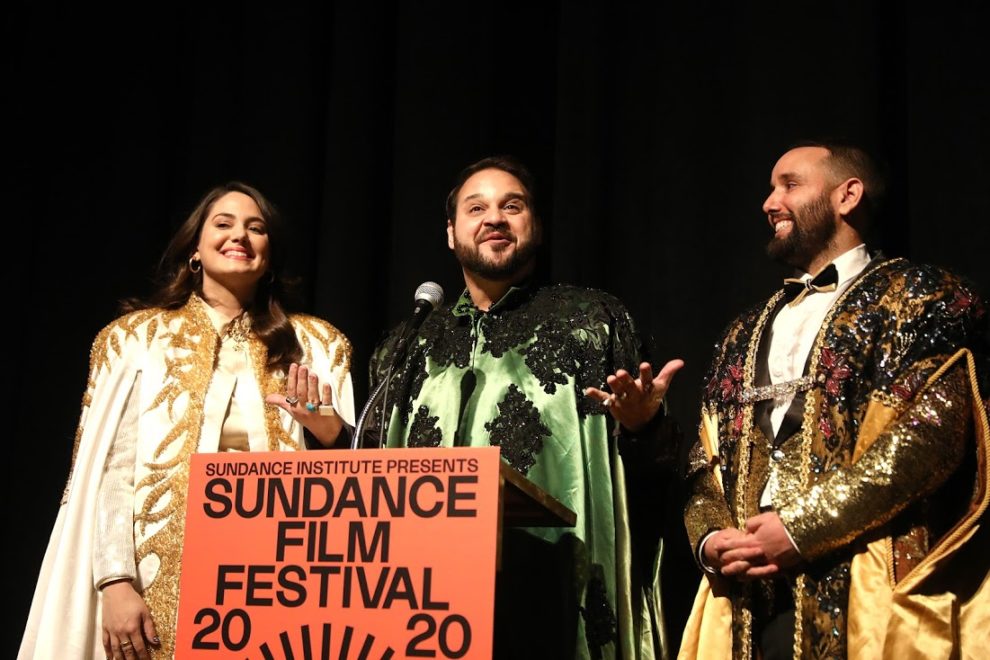The following is part 2 of our interview between Daily Chela contributor Angelica Peña and filmmaker Kareem Tabsch. If you missed it, you can read part 1 of the interview here.
When I was looking at the reviews [for Mucho, Mucho Amor], they were applauding the film, but I noticed that some critics believe there was too much blame that fell on Bill Bakula. They were saying that they felt like you absolved Mercado a little bit more than you should have. How would you respond to these critics?
Listen, I think that Walter and Bill had a very complicated relationship, in that it was good for a very long time. When it was good, it was very good and that was for a very long time. When it stopped being good, it was really not good. I think you can’t absolve Walter completely of any kind of blame, because reality is, Walter’s an adult. He was certainly responsible for the decisions he made, and he should have been more cautious in any agreements he got into.
I don’t think that Walter himself was proud of everything. In the film, we talk specifically about the 900 numbers and we asked him. You hear me ask him off camera, “people say that this was a scam, that you were doing it to take advantage of people.” You could see him hesitating a bit there. I think that in hindsight, that part in particular, is something that Walter is not very proud of and if he had to do it over again, I don’t think he would have.
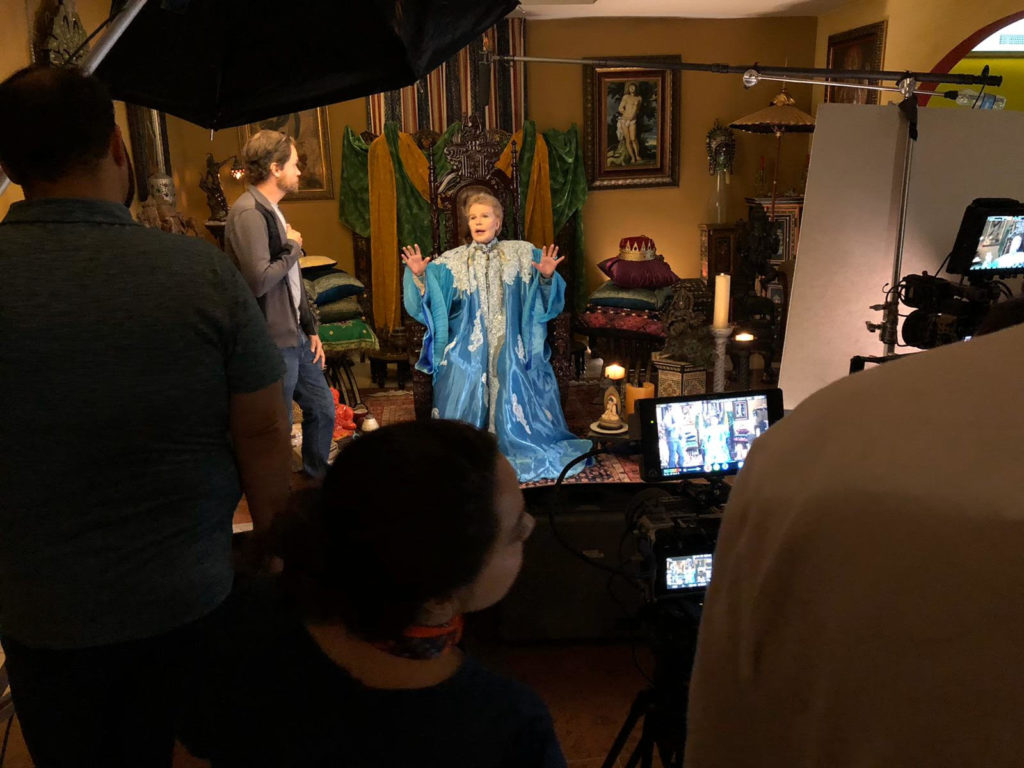
I think the reality is that even our heroes are complicated figures. People we love have done things that maybe we don’t love that they’ve done or have done things that they themselves are not very proud of. I think it’s important to realize that. In our film, we certainly weren’t trying to make it feel like Bill’s the bad guy and Walters the good guy.
We wanted just to present the facts as they were and let the audience determine it, which is like I said, something I tend to alwayswant to do. We presented the facts of the relationship as they were, presented Walter and his family’s viewpoints about what went wrong with Bill, and Bill’s own viewpoints about the relationship and the agreement and what happened. But at the same time, we didn’t want to completely leave Walter off the hook and I certainly heard the argument that we could have gone after Walter harder or not.
I think, at the end of the day what we decided to do is tell the story of what we would consider an overwhelmingly positive figure in our culture and in our history and in our community. Walter certainly made mistakes. I think we touch upon some of them in the film.
I think others are a little bit more common knowledge. I think others just didn’t fit in our narrative, but he made mistakes because he was a human being. Human beings make mistakes. I mean, that’s how it works. No one’s perfect. That’s 100% true, but I think we all felt that at the end of the day, the good that Walter did overshadowed any of the negativity he may have been throughout it or involved in. He did much more good in the world but he did bad and so that was the story that we wanted to tell.
“I’m ready to fight for myself and for other people. I think we need to just realize that we all have to lift each other up and that’s equally important.”
But listen, when Walter died at the 88 years old. It was a long, complicated, rich life. In 88 years, you could do a lot, a lot of really great things, a lot of things that you might regret or would’ve done differently. As a documentarian, there’s just so much that you can cover in a film respectfully and completely. So, I feel pretty good that we helped. We asked Walter the questions.
We asked if he feels he was taking advantage of people and we asked Bill all the questions about how some things went and why they went that way. We let audiences walk away and I think the fact that some critics say that maybe we let him off too easy, it’s partially us doing our job, in that we let you as an audience decide how you should feel. I think it says something that people overwhelmingly view Walter positively though.
Do you have any thoughts or ideas about the way that queer people of color people are treated in the film industry? Are there any differences that you’ve noticed?
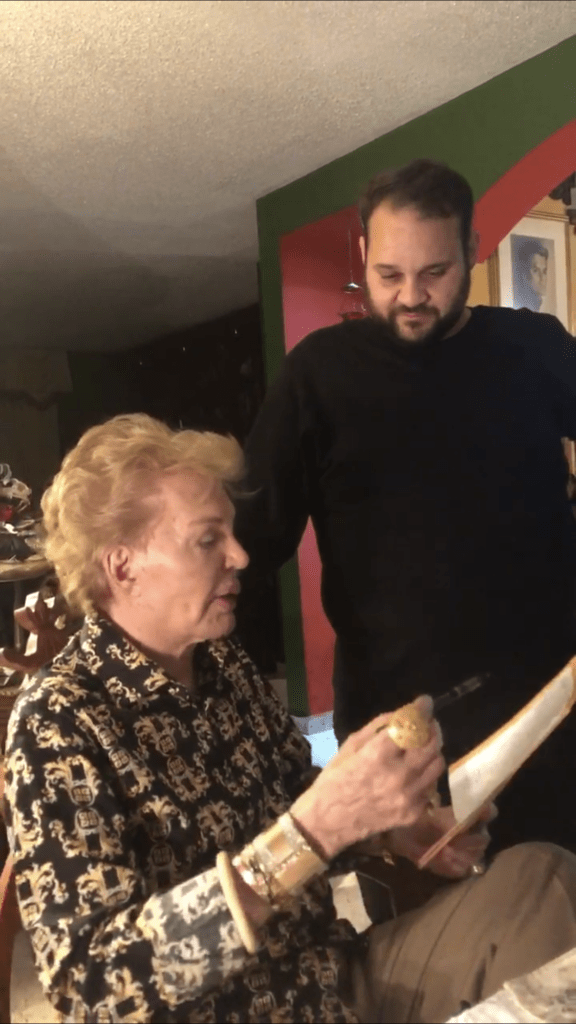
I would say that it’s good to see that, in some ways, things have gotten better and I’m always encouraged to see that there’s more stories about queer people and people of color, especially Latinos. I mean, it’s encouraging to see more of that, but at the same time, we can’t deny that there’s such a long way to go.
As an industry, our stories are still told through a white gaze and the gate keepers are still mostly white, cis male and our country is so much more than that, you know? I mean, obviously our world, but talk about our country [specifically]. It’s so much more than just white, cis straight guys and yet, they’re still the gatekeepers. They’re still the ones that are helping get stories told and green lighting what gets told. It’s frustrating because there’s such an immense amount of talent coming from communities of color and from queer communities. Yeah, we’re doing better, but we’re not anywhere near where we should be.
A perfect example was Mucho, Mucho Amor. This is a film that when we set out to make it, I had made The Last Resort which is a small film that had played theatrically in a lot of cities in the U. S., several cities, major cities and it made money theatrically.
For the size of the film that it was, it did pretty well. It was well received.Alex Fumero, our producer, was a VP of programming at HBO, had been in the industry a while. He worked at other places, like Uncle Leone and other film companies and had been in the industry 10-15 years. Christina [Costantini] had just made Science Fair, which won “The Best of the Festival” at Sundance and then won the audience award at South by Southwest, and we had Walter Mercado, this iconic figure of television, the loved, world famous, 120 million people a day at the height of his career.
We said, this is a winning recipe. Here we have all the ingredients for a success. This should be easy. Reality is, it was anything but easy. It took us a year and a half before we got any real money to make the movie. We had a small $10,000 grant start and then we worked for a year and a half with deferring payments, calling in favors, asking friends for favors and we never really fully raised all of the money we needed to make the film.
Support Chicano/Latino Media. Subscribe For Only $1 Your First Month.
It’s because the people that we sat in front of and pitched the movie to didn’t look like us and didn’t understand what we had. So, it’s not surprising that when we finally got two real offers for the film- we decided that we’re going to presell the film. We got two real offers. It’s not surprising that both of those offers had Latino executives at the companies involved in the process because you had people in the room who could advocate for us as filmmakers, but also for the importance of our story.
People would say, “Hey, you listen. Walter Mercado is a really big deal. We should get this film. We should get involved. We acquire. We should support.” I think that says so much. Having people in the room that represent the community at large, who represent your audiences, it’s important.
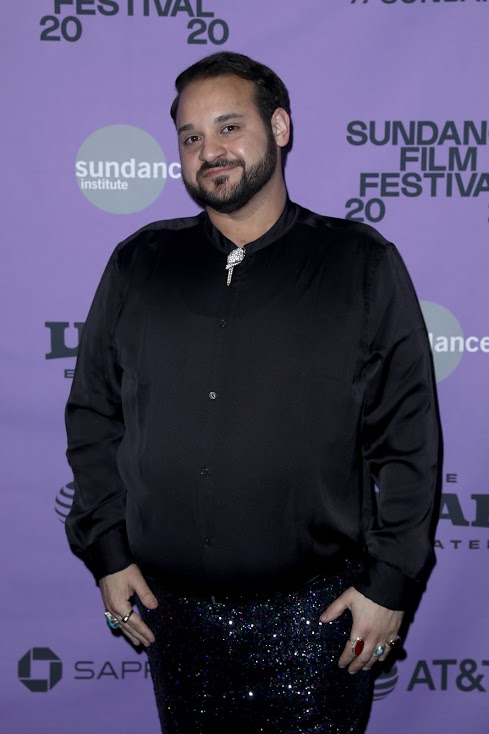
The flip side of that is look at the caseof our film now. It premiered at Sundance, which is a huge honor. We get into every film festival we wanted to play at, between Sundance and when we released. Obviously, COVID came in the way of letting us play there, but we were at Sundance to South by Southwest and Miami International and Full Frame and Hot Docs and True/False and Ambulante.
All of the festivals we wanted to play at, we got invited to and we were obviously proud. But it also spoke to the fact that a good story is universal. People will appreciate it and viewers will respect it and will find it. If we hadn’t come across these execs, particularly Bernardo Loyola at Netflix. If we hadn’t come across them, who wanted to come on board, where would we have been? It’s great to see how far we’ve come, but we have so much further to go.
It’s important to be able to lift one another up too, you know. Obviously, it has to be quality, right? Like the work has to be good. The skills have to be good and/or the promise has to be there, right? [There’re] people who maybe just have not had the opportunity and you need to be able to create the opportunities. I think it’s important to realize that we have a really long way to go.
The film has been really successful. We’re really proud of that. I mean, I think we’re like the fifth highest rated film on Rotten Tomatoes of the year so far, and that’s amazing. It could have easily just not have happened, and the next one is not going to be easier either because we know that we’re up against a lot of challenges.
By the looks of our faces, by the pronunciations of our last names, and by the stories that were interested in telling. So, you know it’s going to be a fight, but it’s alright. I’m ready to fight for myself and for other people. I think we need to just realize that we all have to lift each other up and that’s equally important. I think there’s a lot of mentoring that has to go on, but a lot of community that has to happen for queer folks, for Latino folks or people of color, in general. We have to celebrate one another, and including ourselves, if we want to all come up and change the way the media and entertainment that’s created in this country reflects the population of the country.
For young Latinos out there and potential filmmakers, what advice would you give them if they were hesitant or felt ostracized from the film industry?
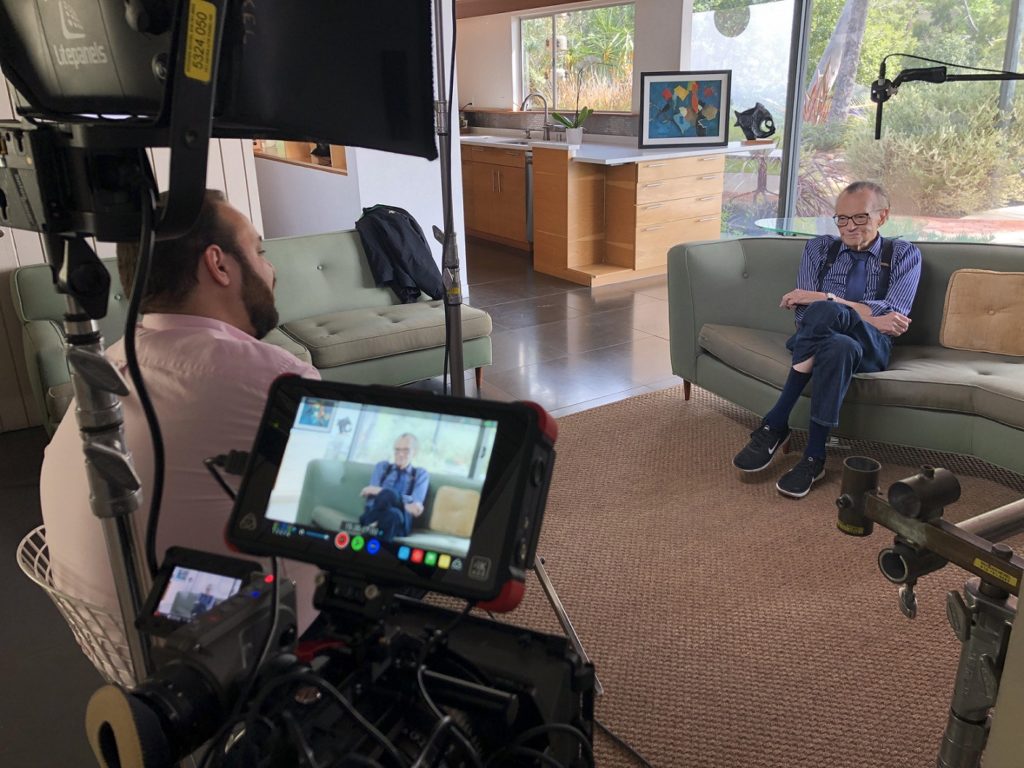
I mean, I relate to that so much. I would say a couple of things. I would say one is that, it’s never too late to start your filmmaking journey, your journey as a filmmaker. I’ll be 40 this year. I made my first film when I was 34. So, I was significantly older than everyone around me in a local filmmaking industry. Just in general, I was getting such a late start, but for me, two things happened.
It’s an interesting aside, but it’s connected. When I started to make my first film, which was Cherry Pop, I told a couple of people and they’re like, “Oh, that’s cool. Yeah, good luck with that.” I met Andrew Hevia who’s still a very good friend of mine and Andrew and I told him the story about Cherry Pop.
He said “Hah, that sounds like a funny story. You should do that. You should make it. I’ll help you.” Then Andrew introduced me to Joey Daoud and these are two, still two of my closest friends. Joey got involved in it. He’s like, “Joey, you should help him with editing the film.” We’re all pretty making it together at one point.
It wasn’t until I told them, and they said, “Yeah, you should do it and I’ll help you.” But really, the moment that they said “Yeah, you should do it,” I felt like they gave me permission that I didn’t realize I needed. It’s like calling yourself a filmmaker. You have to make a film to be a filmmaker, but you have to be a filmmaker to make a film. It’s interconnected and once you have somebody that gives you that little spark of inspiration or permission, take it and run with it.
I like to say that Andrew is a co-producer on Cherry Pop. The other film he went to co-produced was Moonlight. So, I didn’t strike it too bad from the start, but he just gave me permission to call myself a filmmaker, to feel that I could make a movie, and that made all the difference.
Even if I looked back today, I would say that struggle of calling myself filmmaker has continued. Probably about the last year or two, where I’ve been more comfortable with it. But for those people, what I learned in that, was that, in a way, filmmaking is easier than it’s ever been.
- “La Mission” Movie: Underrated Chicano Classic?
- What Does “Authentic” Mean In Latino Entertainment?
- Rosa’s Reviews: “Bob Marley: One Love”
The access to the tools you need to tell a story are easier than it’s ever been, right? Most of us, we have a video camera on our phones, right? There’s your first camera. Just go out and do it. It’s not always going to be perfect, but sometimes perfection is the enemy of progress, right? If you’re always only focused on making the perfect first film or the perfect moment and you’re paralyzed by perfection to keep it ongoing to the next one, you’re never going to be able to keep on doing it. Just keeping on doing it every time is how you get better at it.
So, I think that particularly for Latinos because we have such an uphill battle, asLatinos, to climb in this industry, but we also have such rich and fascinating cultures and history and stories that we should be telling. You don’t need anyone else’s permission. If you need your permission, I’m giving you permission. Go out and do it now. Pick up your phone if that’s all you have.
Use your computer. There’s really a wealth of resources at your fingertips. The first one might not be perfect, but the second one will be better than the first, and the third will be better than the second and so on. Just go out there and iterate. The tools you need to learn, the skills you need in order to make films are all available at our fingertips.
The Internet is a great thing for that. You have access now to more films around the world than anyone else. It’s just like [how] they tell a writer, the first thing a writer should do is read. The first thing you should do as somebody who’s a filmmaker or who wants to be a filmmaker, is to watch films and I think that’s a great first time to start.
Support Chicano/Latino Media. Subscribe For Only $1 Your First Month.
Don’t be afraid to knock on doors. Don’t be afraid to ask for help or ask for opinions or ask for advice because I think that what happens is that those things end up being the way that people meet you and learn who you are. You don’t always have to ask for something for free. Advice is a great thing because people could become more emotionally invested in you because you’ve [sought] them out for their advice. You could learn important things along the way.
We’re not all going to be Guillermo del Toro out of the gate or Pedro Almodóvar out of the gate or anyone like that, but we start somewhere, and those folks all started somewhere, too. If you keep at it, you never know where you’re going to end up. The thing that for me career wise, is really important is when I started, it was a past timing.
I didn’t start filmmaking 100% all in from the very beginning. I had a regular job and so it took a little bit of the financial pressure off of filmmaking. I was able to make films as a passion. I still wanted to make the best films I could, but I wasn’t worried about paying my bills. I guess that that’s very different for some people. Not everybody has the opportunity to throw themselves all in and do it. Some people might have to have a regular job, but if you want to do it, you’ll find time. You’ll find time. You’ll find the resources. Just believe that you have a voice that’s important to be heard.
You are currently working on a documentary about Bunny Yeager. Could you tell us a little bit more about that or any other future projects that you have in mind?
I have a couple of different projects in the works. Most are in development. I really can’t talk about them just yet, but the Bunny Yeager project is something that’s been in the works for the last couple of years. I’m co-directing it with my buddy, Dennis Scholl who I made The Last Resort with. It’s a story of Bunny Yeager who’s a photographer, very highly influential pin up photographer, model turned photographer, who had a huge influence in American pop culture without us even knowing about it.
She helped popularize the bikini in American culture. She’s one of the people responsible for discovering Bettie Page and she was one of the early contributors to playboy. Through it all, she was challenging the notions of the role of women in society, like what quote unquote a “nice girl” could and could not do. In a way, she was one of pop culture’s first reluctant feminists.
She had a really, really fascinating life. She’s from Miami. She actually lived ten- not even ten minutes from where I live. So, we’re hoping to, in our documentary, tell the story of her life and her work, and at the same time share the story about the sexual revolution and changing morays of America. At this point, it’s hard to say when anything’s going to be done with COVID and all of that, but I suspect that it’s going to be late 2021 and I’ve got a couple of projects which may happen before that but who knows.
Get Stories Like This In Your Inbox
To receive weekly updates like this in your inbox, subscribe to The Daily Chela newsletter here.



